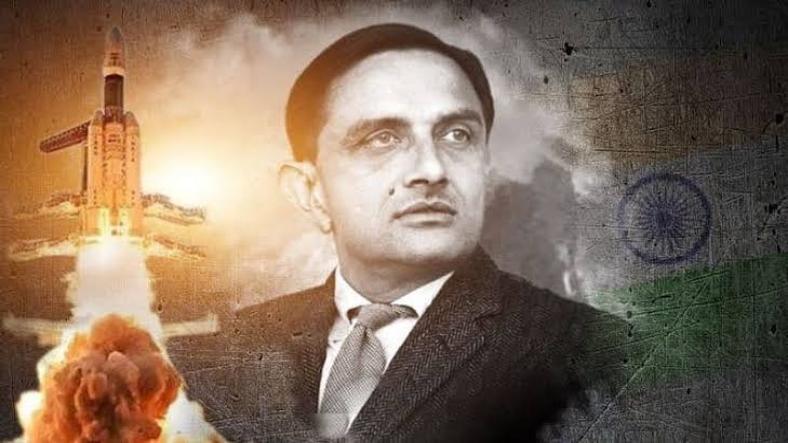Vikram Sarabhai (1919–1971) was an eminent Indian scientist, physicist and innovator who played a pioneering role in the development of space research and technology in India.
Here's an overview of his life and contributions:
- Early Life and Education: Vikram Sarabhai was born on August 12, 1919, in Ahmedabad, Gujarat, India, into a prominent family of industrialists and intellectuals. He completed his early education in Gujarat and later pursued higher studies in physics at the University of Cambridge, England.
- Scientific Career: Sarabhai made significant contributions to various fields of science, including cosmic rays, nuclear physics and space science. He established several research institutions in India, including the Physical Research Laboratory (PRL) in Ahmedabad, which focused on space research and atmospheric sciences.
- Indian Space Program: Sarabhai is widely regarded as the father of the Indian space program. He played a key role in the establishment of the Indian National Committee for Space Research (INCOSPAR) in 1962, which later evolved into the Indian Space Research Organisation (ISRO). Under his leadership, India launched its first satellite, Aryabhata, in 1975, marking the country's entry into space technology.
- Satellite Communication: Sarabhai emphasized the importance of satellite communication for India's development and worked towards the launch of the first Indian satellite, which led to the establishment of the Indian National Satellite System (INSAT) for telecommunication, broadcasting and meteorology.
- Educational Initiatives: Sarabhai was passionate about education and founded several academic and research institutions, including the Indian Institute of Management (IIM) Ahmedabad and the Community Science Centre in Ahmedabad, aimed at promoting scientific awareness among the public, especially children and youth.
- Recognition and Honors: Vikram Sarabhai received numerous awards and honors for his contributions to science and technology, including the Padma Bhushan, India's third-highest civilian award, in 1966. He was also elected as a Fellow of the Royal Society of London.
- Legacy: Vikram Sarabhai's visionary leadership and pioneering efforts laid the foundation for India's achievements in space exploration and technology. His commitment to scientific research, education and national development continues to inspire generations of scientists, engineers and innovators in India and around the world.
Vikram Sarabhai's vision and dedication to advancing science and technology for the benefit of society have left an indelible mark on India's scientific landscape. He is remembered as a visionary leader and a trailblazer in the field of space research and technology.
Thanks for reading the article, for more great peoples related articles read our peoples blog articles.




![Dell [Smartchoice] Core i3-1215U, 12th Gen (8GB RAM/512GB SSD/FHD/Window 11/MS Office' 21/15"(38 cm)/15 Month McAfee/Black/1.48kg Laptop Dell [Smartchoice] Core i3-1215U, 12th Gen (8GB RAM/512GB SSD/FHD/Window 11/MS Office' 21/15"(38 cm)/15 Month McAfee/Black/1.48kg Laptop](https://m.media-amazon.com/images/I/61QXAqq9OhL._SX679_.jpg)





